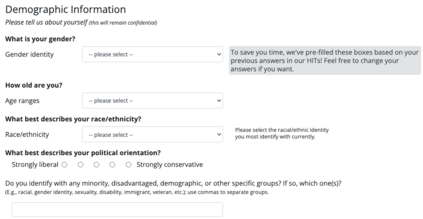Essentialist beliefs (i.e., believing that members of the same group are fundamentally alike) play a central role in social stereotypes and can lead to harm when left unchallenged. In our work, we conduct exploratory studies into the task of countering essentialist beliefs (e.g., ``liberals are stupid''). Drawing on prior work from psychology and NLP, we construct five types of counterstatements and conduct human studies on the effectiveness of these different strategies. Our studies also investigate the role in choosing a counterstatement of the level of explicitness with which an essentialist belief is conveyed. We find that statements that broaden the scope of a stereotype (e.g., to other groups, as in ``conservatives can also be stupid'') are the most popular countering strategy. We conclude with a discussion of challenges and open questions for future work in this area (e.g., improving factuality, studying community-specific variation) and we emphasize the importance of work at the intersection of NLP and psychology.
翻译:摘要:本质主义信念(即认为同一组的成员在本质上相似)在社会刻板印象中起着核心作用,如果不加挑战,可能会导致伤害。在我们的工作中,我们对对抗本质主义信念的任务进行了探索性研究(例如,“自由主义者很愚蠢”)。借鉴心理学和自然语言处理方面的先前工作,我们构建了五种类型的反驳语句,并对这些不同策略的有效性进行了人类研究。我们的研究还调查了在选择反驳性陈述时,以哪种明确说法表达本质主义信念的程度的作用。我们发现,扩大刻板印象范围的语句(例如,“保守派也可以很愚蠢”)是最受欢迎的对抗策略。我们最后综述了这一领域的挑战和未来工作中的开放问题(例如,提高事实准确性、研究社区特定的变化),并强调了在自然语言处理和心理学交叉方面工作的重要性。








